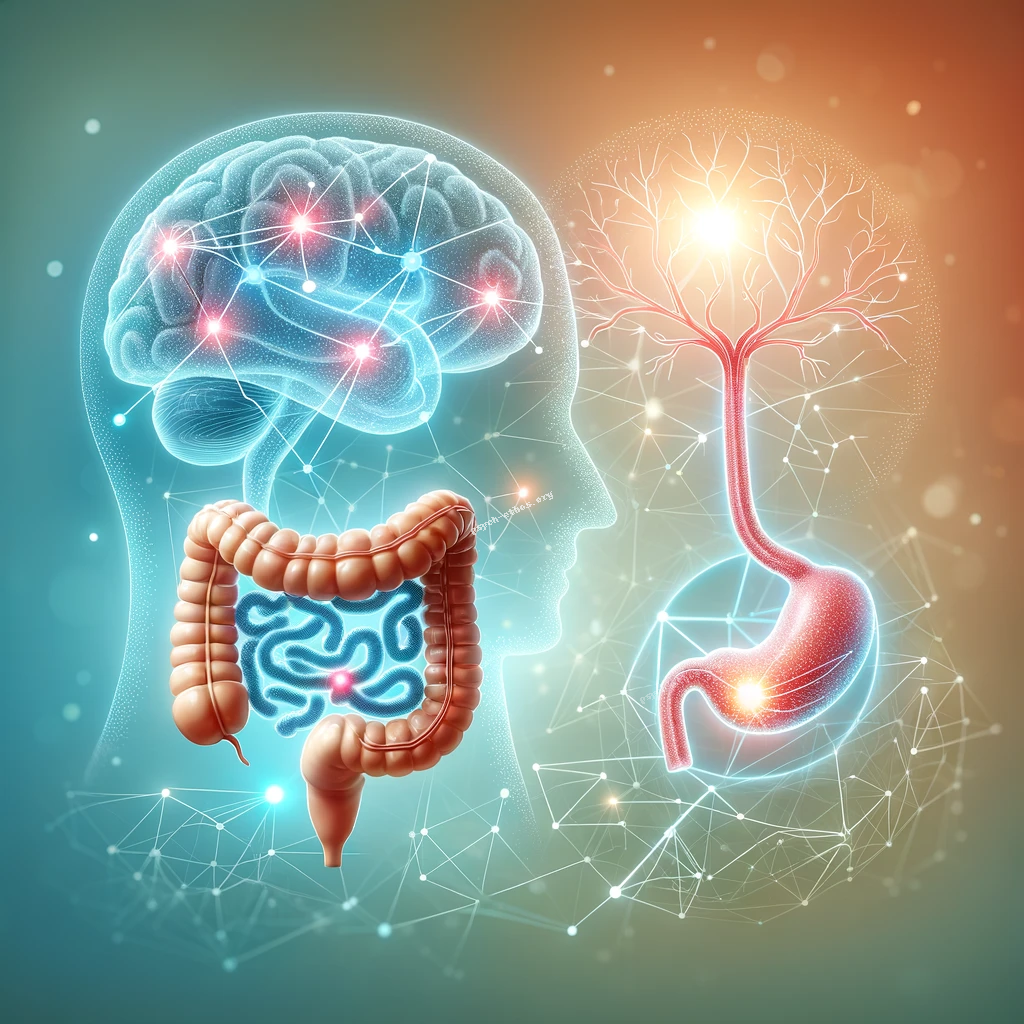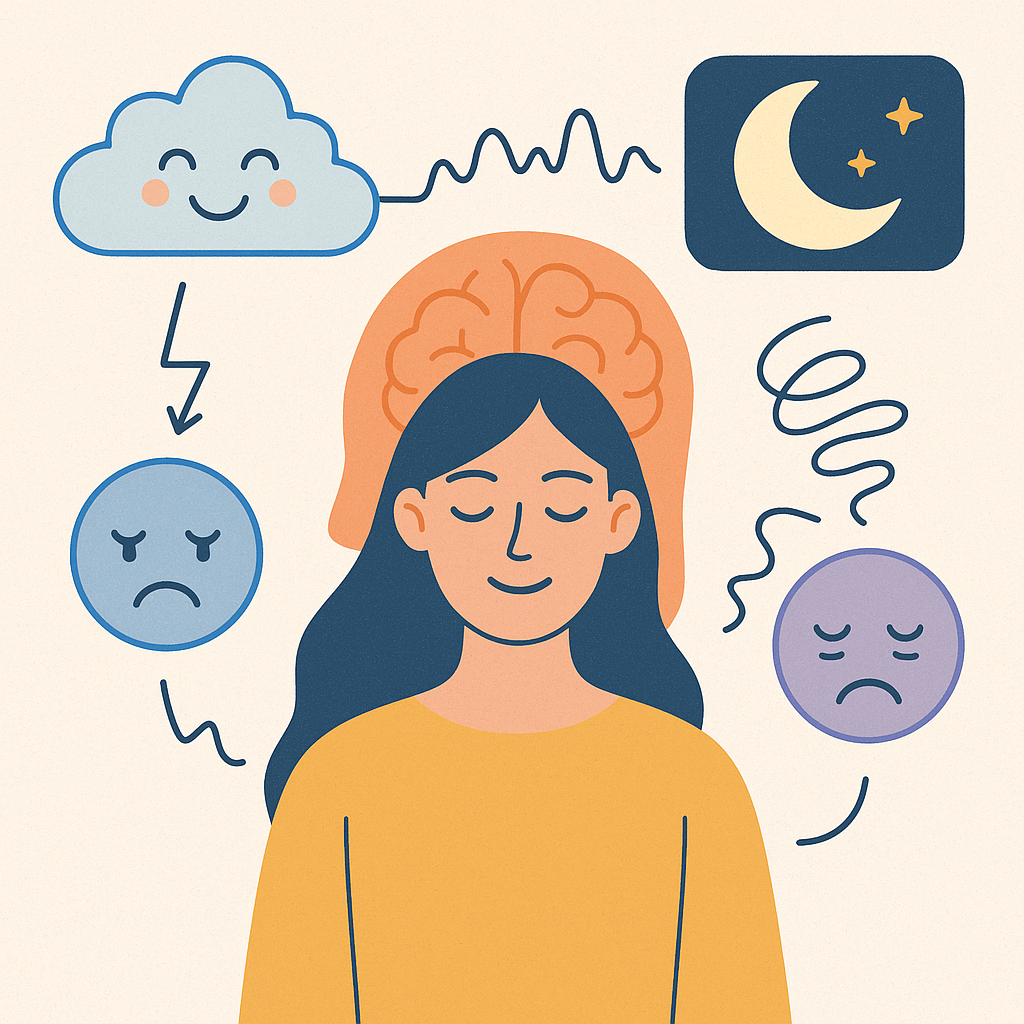
That Gut Feeling: How What’s Happening in Your Belly Affects Your Mind
Hey everyone,
Ever get those butterflies in your stomach when you’re stressed or excited? That’s not just a saying – it’s a real-life example of the super close relationship between your gut and your brain. Today, I wanted to dive into this fascinating connection and chat about why looking after your gut can have a surprisingly positive impact on your mental well-being.
The Amazing World Inside: Your Gut Microbiome
To put it simply, your gut is made up of your stomach, intestines, and colon. Right from the moment we’re born, a whole universe of friendly bacteria starts setting up shop inside us. These tiny residents aren’t just freeloaders; they’re busy helping us digest our food, absorb all those good nutrients, and even play a major role in keeping our immune system strong.
Personally, I was pretty clueless about just how much our gut does behind the scenes until I started digging into it. It’s like having this intricate little ecosystem inside you that needs looking after – just as much as your mind or your skin!
It’s also worth highlighting that your gut is a real powerhouse when it comes to defending your body. The microbes living there help shield us from unwanted invaders, produce important vitamins, and even contribute to our energy levels. Pretty cool, right?
Your Second Brain: The Enteric Nervous System
Scientists often call the gut our “second brain,” and it’s easy to see why. Your gut contains around 100 million neurons (some even say more!), forming this incredible network called the Enteric Nervous System, or ENS for short. This network stretches all the way from your esophagus down to your rectum and is in constant communication with your brain.
Think about it this way: when you eat, enzymes get to work as you chew and swallow. These enzymes break down your food so your body can soak up the good stuff and get rid of waste. While it might seem like a purely mechanical process, it’s actually orchestrated by your ENS.
What’s even more mind-blowing is that while the ENS doesn’t handle your thoughts and emotions in the same way your brain does, it’s constantly sending signals up to your brain and receiving messages back. This two-way street can actually influence your mood, how you react to stress, and even your behaviour.
The Gut-Mental Health Link: It Goes Both Ways
More and more research is uncovering just how connected our gut health is to our mental well-being. It’s really interesting to learn that the balance of bacteria in our gut can play a role in things like anxiety, depression, and even some neurological conditions.
In our busy modern lives, many of us grab quick meals, processed snacks, and sugary treats. But these kinds of diets can really mess with our gut microbiome. The good bacteria struggle when they’re not getting the right fuel, leading to imbalances that can affect not just our digestion, but also our mental clarity, emotional stability, and even our immune system.
Let’s break down some key mental health areas that seem to be linked to gut health:
- Anxiety: A decrease in beneficial gut bacteria has been linked to increased anxiety. In fact, people who experience anxiety often also have irritable bowel syndrome (IBS).
- Mood Disorders: Changes in the mix of microbes in your gut have been associated with depression and other mood disorders. It seems the gut might influence how our bodies produce and regulate important brain chemicals like serotonin.
- Parkinson’s Disease: Interestingly, constipation often shows up before the more well-known motor symptoms in Parkinson’s patients. Research is suggesting that disruptions in gut function could be an early warning sign.
- Stress: The HPA axis (hypothalamic-pituitary-adrenal axis), which manages our stress response, is heavily influenced by the bacteria in our gut. Imbalances can make us more susceptible to stress.
- Autism: While the research is still ongoing, some studies have found that individuals with autism may have different balances of gut bacteria. However, we definitely need more evidence here.
- Weight Gain & Insulin Resistance: Your gut bacteria play a role in how your body processes food. An unhealthy balance can contribute to weight gain and affect how your body regulates insulin.
- Sclerosis & Aging: Emerging research suggests that our gut microbes might even be involved in things like muscle strength, cognitive function, and the aging process itself. The microbiome could even be a factor in diseases like multiple sclerosis.
Brain Chemicals and Your Belly: The Inside Story
To really understand how our gut influences our mental state, it helps to know a little about neurons and neurotransmitters.
Neurons are like tiny messengers in our nervous system, and they communicate using chemical signals called neurotransmitters. These neurotransmitters help regulate everything from our mood and movement to our behaviour. One of the most famous neurotransmitters, serotonin (which plays a big role in feelings of well-being), is actually produced in surprisingly large amounts in the gut!
So, when people say “trust your gut,” it’s not just a figure of speech – there’s some real biology behind it. Keeping your gut balanced can directly impact how you feel mentally and emotionally.
Simple Ways to Show Your Gut Some Love
Looking after your gut doesn’t have to be a huge overhaul. Small, consistent changes can make a big difference:
- Load up on fruits and veggies: Aim to include plenty of fresh produce in your daily meals.
- Embrace prebiotics: These fibre-rich foods feed your good gut bacteria. Think onions, garlic, cabbage, bananas, barley, oats, and flax seeds.
- Welcome probiotics: Fermented foods like yogurt, buttermilk, paneer, green peas, and naturally made pickles (the non-vinegar kind!) are great sources of beneficial bacteria.
- Cut back on processed foods: Try to minimize packaged and processed items whenever you can.
- Get moving: Daily exercise, whether it’s yoga, walking, or stretching, supports healthy gut function.
- Consider an earlier dinner: Eating before 7 p.m. can give your digestive system more time to rest and repair overnight.
In Conclusion: Listen to Your Gut
The more we learn about the gut-brain connection, the clearer it becomes that our digestive health is about so much more than just avoiding tummy aches. It’s a fundamental pillar for mental clarity, emotional resilience, and overall well-being.
By nourishing your gut with wholesome foods, staying active, and paying attention to your habits, you’re also nurturing your mind. Gut health is truly a gateway to a more holistic sense of well-being – and it all starts from within.
References:
https://www.ncbi.nlm.nih.gov/pmc/articles/PMC5641835/ https://pubmed.ncbi.nlm.nih.gov/31489949/ https://www.ncbi.nlm.nih.gov/pmc/articles/PMC10384867/ https://rdcu.be/dFkC4 https://www.nature.com/articles/nature11552 https://doi.org/10.3389/fpsyg.2023.1215674
